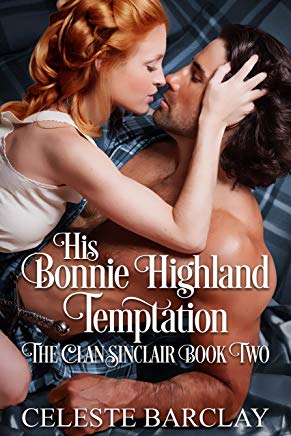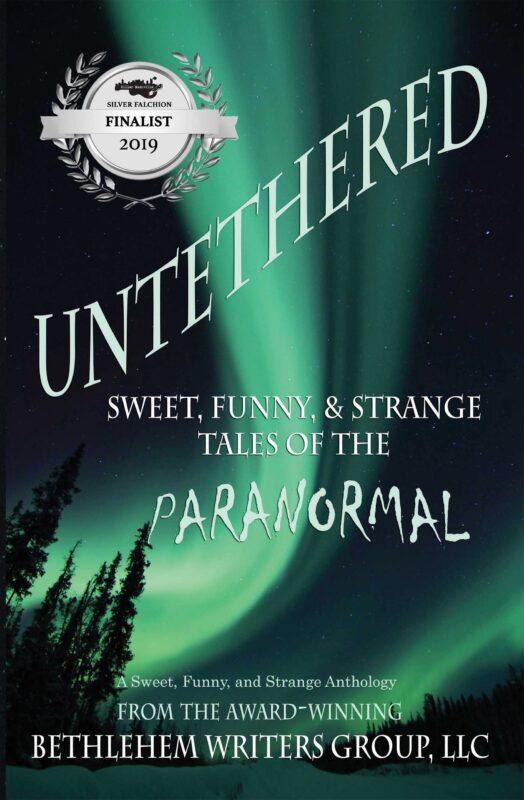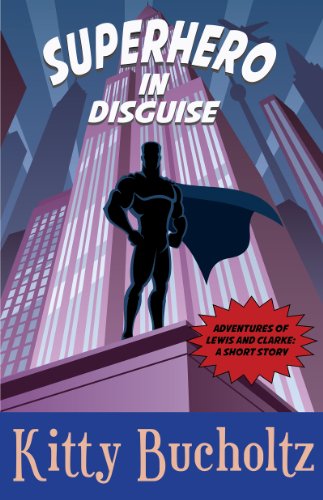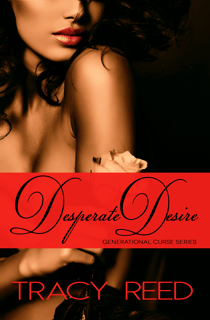Creating the Bond of Friendship in Your Novel by Connie Vines
November 13, 2016 by A Slice of Orange in category Archives tagged as Connie Vines, Friendship, OCC Blog, writing, www.novelsbyconnievines.comNearly every book I’ve read has a protagonist. And all of those protagonists were surrounded by several, if not a great many, friends. Within my own stories, my protagonists have quite a few friends. Among those friends, there are usually one or two, maybe three, friends that the protagonist is especially close to. One of my all time favorite series, Vampire Academy by Richelle Mead, follows best friends Lissa and Rose, who act like sisters most of the time. While reading, it’s clear that the two have known each other for a long while, see each other as their closest allies, and see their lives as them against the world. It’s obvious that they’re very close. The question is how does Mead accomplish this? How does any author establish these types of close friendships between characters without blatantly telling the reader?
If you think of your own close friendships, or your best friends, you’ll probably recognize five or more of the following in your relationship with these particular friends –
Understand without speaking.
When you’ve known someone a really long time, or have spent so much time together, you get to know the person so well that you pick up on their habits and quirks and body language. When they bite their lip, you know it’s not that they’re confused, but that the water works are about to begin and it’s time to get them out of there. You understand each other so well that no one needs to say anything.v You might not be able to read each others’ minds, but you understand each other well enough that neither of you needs to say anything. You just do.
Tease each other.
There’s artificial teasing, there’s bully teasing, there’s flirting teasing. But among friends, it’s the way we gently point out each others’ issues and faults without being cruel, it’s how we remind each other of good times, it’s how we connect and communicate. Between best friends, teasing is just another way we talk to each other. There’s no malice, jealousy, anger, or bitterness behind it. It’s often light, fun, laughable, and in good humor. It’s a way to make your friend laugh when they’re on the verge of tears. It’s the way we build each other up when our plans fall through. Teasing is always there, but it never, ever becomes a way of putting each other down.
Rely on each other.
Through good times and bad, friends can always be relied upon to be there and help each other. There are no excuses, there is no distance, there are no events that could prevent two best buds from helping each other out in times of emotional and physical need, and friends rely on each other for that. But friends also rely on each other for comfort, for support, for encouragement, and for all the things it seems the world wants to take away from us.
Seek each other’s advice.
Perhaps more than our parents, teachers, advisors, and mentors, we seek advice from our friends first. This might be a perfectly faulty action, but because friends understand each other and rely on each other, it’s natural that we seek advice from those we know, and who know us, best.
Feel comfortable around one another.
As with all of the above, friends are comfortable with each other enough to seek that advice, tease each other, and rely on one another. Even more than that, friends are comfortable with and around each other that they don’t care if they do something stupid, or say something idiotic. Because they’re comfortable with each other, these things happen and no one cares, because these silly things hardly define us. It’s the same with crying, or showing how truly angry we are, or how hopeless we feel. Friends know each other so well that they be vulnerable and sensitive, and the friend won’t misuse them.
Miss each other when gone.
Probably the greatest understatement of all these, but best friends will miss each other. They might be separated for only a day, maybe one has moved away. But miss each other they will, just the same. The effect this has on each other is anyone’s guess, as everyone reacts differently to separation. Some might become depressed, others might lash out, and some might just have that aching sense of loneliness in their gut that seems like it can’t ever be filled. There is most definitely a reaction, and missing each other is just the surface.
Have similar interests/hobbies/goals/pasts.
Whether they grew up together, or met at summer camp, or took the same art class, friends have similar interests. There’s something that initially drew them together, and in writing a book you can’t just put that aside. It will always be their foundation, and while the foundation can grow, there’s that one point, however small and insignificant in the present, that brought them together.
Grow together as individuals and as friends.
If any relationship is to last and get stronger, growth is a must. Trials, tragedy, celebration, joy; all these add to and change a person, their actions, and how they consider new situations, and this happens in a friendship as well. While going through similar occurrences, if friends cannot grow together, change. Make sure to show the friends, and their friendship, grow through the story.
Don’t judge.
It’s simple. Close friends, who understand, rely, advise, and help each other, just don’t judge. Regardless of what one does, or what the other thinks about a topic, they don’t judge. They accept that they’re individuals with different views and opinions on some things.
Don’t try to change each other.
As I said, friends accept each other. They don’t try to change one another, or mould each other into what their ideal would be, because that would be the farthest thing from acceptance. Friends understand, they don’t judge, and they don’t try to change their friends’ personalities, opinions, views, likes or dislikes, or their hopes and dreams. They accept everything about each other, and celebrate their differences.
Confide everything.
Friends naturally want to talk with each other and discuss the things that happen in their lives, but best friends, as I’m sure you know, will talk about everything. They confide everything in each other without fear of being rejected or judged.
Fights sometimes happen, but making amends occurs quickly.
No friendship is perfect, and because there are two people involved, disagreements are bound to occur. But when fights begin, whatever the topic, close friends will try to move past the argument and come to a conclusion, generally in the form of an agreement or better understanding of one another. They won’t linger on their differing opinions, and will try to make amends as soon as they can. This leads to stronger friendships, and is a way that the friendship can grow and develop.
Can’t imagine life without each other.
Perhaps more than anything else, best friends simply can’t imagine what life would be like if they weren’t together. It’s something they don’t want to think about, and is the last thing they’ll focus on when confronted with the real possibility of lifelong separation. They’ll come up with excuses, plans, arguments, anything that might be able to change the impending separation. They literally can’t picture their life being apart, because their personalities and dreams and emotional selves are so connected.
These are just a basic few things that can comprise a close friendship. Use some, use none, but make sure you really look at the characters you have and focus on showing that closeness where it’s supposed to exist. It offers greater development of both characters, adds to the realism of the plot, and helps with the overall story.
Good luck and good writing!
Connie
0 0 Read moreOh Mercury Retrograde, Are You Here Again? by Connie Vines
September 13, 2016 by A Slice of Orange in category Archives tagged as #Rodeo Romance #the writing process, astrology, Connie Vines, Here Today Zombie Tomorrow, Mercury Retrograde, OCC BlogJanuary 5th to January 25th
April 28th to May 22nd
August 30th to September 22nd
December 19th to January 28th (2017)
Happy Writing,
Connie
Click HERE all my books are on FREE on the Kindle Count Down!!
Brain Food for Writers by Connie Vines
June 13, 2016 by A Slice of Orange in category Archives tagged as #Cowboys, Brain Food, BWL Ltd., Connie Vines, OCC Blog, OCC Slice of Orange It wasn’t until I completed this blog post that I realized that my title, well. . .carried an unintended double meaning.
It wasn’t until I completed this blog post that I realized that my title, well. . .carried an unintended double meaning.
My featured novella this month — Here Today, Zombie Tomorrow– is a Zombie story. And today’s topic is brain food. Well, brain food for writers, anyway.
On deadline? Obsessed with your current storyline? Forfeiting sleep, exercise, and nutrition to reach the moment you can type the words The End on the final page of your novel?
Here are a list of grazing foods that you can keep on hand. High in protein, easy prep, and tasty.
Single serve, or 5 ounces of nonfat cottage cheese. 3 grams more protein than a typical serving of Greek yogurt.
Hard boiled Egg. No longer shunned due to claims of too high cholesterol, we can enjoy in moderation. You can boil yourself or purchased peeled and packaged at the market.
Peanut butter. Scoop your own or purchase in single packets, smear on a banana or apple slices.
Roasted chickpeas ( I love hummus and falafel). 120 cals per serving, 5 gram of protein and fiber.
To prep yourself rinse and drained chickpeas in a bowl with olive oil. Add chili powder, cumin, salt, and pepper. Oven bake at 425 degrees for 45 mins.
Greek yogurt
Turkey roll ups. Nitrate free deli turkey breast with a squirt of mustard, a slice of tomato, and some lettuce. Add red pepper slices and baby carrots. Roll and store in a plastic container or foil.
Hummus. Made from chickpeas, tahini, and olive oil, hummus is a healthy mix of protein and fiber. Use it as a dip for carrots, tomatoes, red pepper, and cucumber slices,
100-calorie almond packets.
String cheese.
Happy Writing & Reading.
Connie
0 0 Read moreResearch: Does Inaccuracy in a Novel Bother You? By Connie Vines
April 13, 2016 by A Slice of Orange in category Archives tagged as Connie Vines, Gems in the Attic, GothRom RWA, Native American Romance, OCC Blog, OCC RWA, Research for WritersI blog weekly on two sites (in addition to my own) and monthly on four website, I thought I’d post a topic from my Round Robin Series.
Topic: All story genres take some research for establishing details in the setting. What type of research have you had to do? Does it bother you when you read something happening in a story that is inaccurate historically, socially, scientifically, etc?
Does it bother me?
Yes.
However, in my case, there are varying degrees of irritation. If it is an easily found fact, or a fact that any functioning adult should be aware of then, yes—I am very irritated and will probably not finish the novel. On the other hand if current verbiage is used or the description of an item of clothing is more modern, that could be the writer’s choice. The writer may feel that her ‘readers’ wish to have the ‘flavor’ of a historical story without the genealogy charts or gritty reality of the era. Then I am okay. But to pass the facts off as accurate/ or marketed to make the reader believe this is not a fictionalized story—as in “The Other Boleyn Sister†or Disney’s “Pocahontas†animated movie (with what I like to call the Vulcan-mind-meld when the Hero and Heroine suddenly speak and understand each other), I do become angry. Apparently, I clamp my teeth, and my husband will swear that I growl when these movies become a topic of conversation.
We all make mistakes, I remind myself. Alternatively, the copy-editor adds/ deletes a needed fact. Moreover, sometime we simply ‘thought’ we removed it from the final draft. Still sloppy research makes for sloppy writing. If you do not like research, build your own world/town/or, do not give the reader a date or place to hang her hat on. You and add a statement: liberties were taken; the mistakes are my own, etc.
Researching
Any professional writer knows there is a lot more to the job than simply writing. There is also revising, editing, promoting, and much more. Before I even consider typing: Chapter One. Whether I am writing, historical, or fantasy, I conducted days—if not months or even years, gather my research material and scheduling interviews.
Research is vital to every writer. Contemporary novels required daily research to keep up-to-date on the latest tech item, hairstyle or whatever relates to your storyline.
Every encounter with a new person or visiting a new place is an opportunity for better, more descriptive writing. Writers never truly take a vacation, or turn off the research part of her/his brain.
So how do I organized my research material? (Tossing everything into a large bin is oh-so-not-the-way to be organized.)
#1: Keep a File Folder for Ideas
I have files where I stash clippings of articles on specific topics I feel will come up again, or will one day make great short stories/articles. I have plain colored folders for “shared†topics (I write multiple genres), cute folders (for YA/Teen topics), action folders for supernatural stories, etc.
These clippings are often story generators or prompts to open a chapter/create a pivot point. How many times have you heard something on the radio or watched something on television and thought, “Wouldn’t that be so great in my next novel�
Story prompts can be anything that you find interesting, anything that relates to your genre or area of writing interest. Because my books are character driven, I tend to be drawn to articles that talk about the human condition (i.e., why we do the things we do) or specific topics that I feel relate to my particular ‘character’.
#2: Story Premise Research First
When you start a new project, you must make some decisions. What is the theme of your book? (We might also think of this step as “what is the premise of your book?â€) The answer to this question will guide your starting research.
My third book, Whisper upon the Water, focused a lot on the living conditions and societal attitudes about Native American children. I already knew that Native American children were forced to attend government run boarding schools after the Indian Wars, but I did not know about the process, and how it affected the children or how they adapted. Therefore, I began with interviews, tours of the schools still in operation and trips to historical archives and reservations.
Before I wrote a single word, I looked into this, and the answers I found are what formulated my plot points. I needed this foundation of research to create a convincing plot, otherwise I would not tell the story correctly. I wanted the truth, I wanted historical accuracy and I wanted my readers to have an emotional connection to my characters.
Poor research in the beginning often results in a manuscripts dying at the halfway point. Think of this step as the foundation of your novel.
#3: First-Hand Accounts
As a rule, I set my stories in placed I have lived or visited. However, a writer does not have to go to a city/country to get a feeling for it.
Online Resources
Travel sites, local blogs, and YouTube all have a place in a writer’s arsenal. In particular:
• Travel Sites often have detailed maps and downloadable audio walking tours that can give you context for notable buildings and directional substance for urban areas to include in your book.
• YouTube is a major resource, often underutilized by writers. Those seemingly normal videos are great for providing local terminology, dialect, visual perspective and even minor details like the amount of traffic at a particular park or on a particular street.
#4: Details
• Using Google Maps and Streetview, for my upcoming release anthology at BWL: Gumbo Ya Ya—for women who like romance Cajun & men Hot & Spicy! I was able to get a street view of that area and I could ‘walk’ the streets as they appear in New Orleans. The Streetview feature setting on Google Maps plops you down right at street level and gives you a 360-degree view of everything including traffic, crowds, and architecture. While I do have my personal photos and memories of the city, it is always good to make certain the details are ‘just right’.
#5: Remember to Write
You can always do a fact check on the smaller items as part of the final revision process.
When I am dictating or typing my story, unless an earth-shattering event is in the works, I do not stop the process. I will type:** research time line of Spanish Flu or ** insert the popular song year, and keep writing. When I go back over the material, I will have time to add the particulars.
Research is fun. Unlike may authors, research in my favorite part of writing. Like a method actor, I immerse myself in the process. Hobbies, Music, Books, and Food (well, not food when I wrote my Zombie novella, “Here Today, Zombie Tomorrowâ€. right now, however, it is shrimp Creole, pecan pie and coffee with chicory). Research need not be cumbersome. If you are interested in your subject matter, then it is not work. It is just another part of writing a book.
I believe it is writing a book that is rich in research helps to separate the writers from the multi-published authors.
Readers, how do you feel about this topic? How important is historical accuracy to you?
Happy Reading,
Connie Vines
Dear Diary by Connie Vines
February 13, 2016 by A Slice of Orange in category Archives tagged as #Cowboys, Confessions, Dear Diary; Connie Vines, OCC Blog, OCC Slice of OrangeIt wasn’t I until experienced a seven-hour power-outage during a rainstorm on Sunday that I really pondered the world before electricity.
With the rain and cloud-cover, it was very, very dark and icy cold. I could actually see the alignment of the five planets quite clearly. For those familiar with the southern California skyline, you know that we cannot see the constellations or planets unless we drive to Palm Springs, the mountains, or the high desert. So, combined with the exceptionally cold temperatures and wind chill factor, and an inability to prepare a meal inside my kitchen, I felt as if I plopped into the center of one of my historical novels.
This is what had me ponder the act of writing in a diary.
I hadn’t read a diary (except for research purposes in years).
As a teen or pre-teen, you probably received a diary as a birthday gift or a Christmas present. I know I did. The diary with a lock (which anyone, on a whim, could pick) and a key. At first, my entries were made daily, then weekly, then, seldom at all. Later, the diary evolved into journaling for a writing class, or jot down events, or milestone in my toddler’s life. Now I have a journal app on my iPad that I often use for notes and thoughts about my novels points.
None of scribbles in my journals were as emotionally purging or filled with day-to-day angst of a teenager’s life.
Why? I believe because most my of my journaling was via the keyboard.
Scientific studies prove the act of pen to paper stirs creative thoughts.
While I have no real interest in keeping a detailed diary for myself
What about fictional characters? Do you ever have your fictional characters write a diary?
That is when I recalled my salad days are a writer.
When I starting writing fiction and non-fiction for the magazine market. I published in “Jr. Medical Detective†and “Humpty Dumptyâ€. In my article, “A Candle in the Dark†(still available as part of the Thomas Gale Education Series), my heroine, Sarah kept a diary. The story dealt with the Salem Witchcraft Trials. I found the diary to be a very effect plot device. It was also a good way to give the reader information without using a backstory to interrupt the flow of my story.
What are you feelings about diaries in a novel?
Are there diaries you’ve read you found of interest or diaries that change how you viewed the world?
Why is it a good idea to have a diary in your storyline?
Fictional characters are forced by their authors to carry the story (the process of the narrative). At the most basic level the diary gives you a first-person narrative without the protagonist knowing what is going to happen.
The use of diaries in novels of the past.
Pamela (1740) by Samuel Richardson is usually described as an epistolary novel. However, our heroine also writes a journal, and then sews it into her underwear for secrecy.
Wuthering Heights (1847) by Emily Brontë has a skeletal framework of a diary: “I have just returned from a visit to my landlord. . .Yesterday afternoon set in misty and cold.†Mr. Lockwood will learn about true emotion day by day as he finds out and writes down the story of Heathcliff and the Earnshaws.
Bridget Jones’s Diary (1996) by Helen Fielding is well known to be based on the plot of Pride and Prejudice.
The more I ponder the use of a diary in my next novel, the more I warm to the idea.
I have my favorite pen and I also have turquoise Martha Stewart premium journal I received as a gift for Christmas. While there isn’t a lock and key, there is an elastic band to keep the journal closed. There is also a fabric bookmark so that I may keep my place.
I can picture myself writing today’s date, time, and my first entry. . .Dear Diary.
Happy Reading,
Connie
Connie’s books
Affiliate Links
A Slice of Orange is an affiliate with some of the booksellers listed on this website, including Barnes & Nobel, Books A Million, iBooks, Kobo, and Smashwords. This means A Slice of Orange may earn a small advertising fee from sales made through the links used on this website. There are reminders of these affiliate links on the pages for individual books.
Search A Slice of Orange
Find a Column
Archives
Featured Books
THE CHRISTMAS PRESENT
HOW FAR WOULD YOU GO TO PROTECT THE ONES YOU LOVE?
More info →UNTETHERED: SWEET, FUNNY, AND STRANGE TALES OF THE PARANORMAL
Stoke the campfire and get ready for some chills and goosebumps when you open this paranormal addition to the award-winning Bethlehem Writers Group's "Sweet, Funny, and Strange" anthologies.
More info →DESPERATE DESIRE
How desperate do you have to be, to break your marriage vows?
More info →Newsletter
Contributing Authors
Search A Slice of Orange
Find a Column
Archives
Authors in the Bookstore
- A. E. Decker
- A. J. Scudiere
- A.J. Sidransky
- Abby Collette
- Alanna Lucus
- Albert Marrin
- Alice Duncan
- Alina K. Field
- Alison Green Myers
- Andi Lawrencovna
- Andrew C Raiford
- Angela Pryce
- Aviva Vaughn
- Barbara Ankrum
- Bethlehem Writers Group, LLC
- Carol L. Wright
- Celeste Barclay
- Christina Alexandra
- Christopher D. Ochs
- Claire Davon
- Claire Naden
- Courtnee Turner Hoyle
- Courtney Annicchiarico
- D. Lieber
- Daniel V. Meier Jr.
- Debra Dixon
- Debra H. Goldstein
- Debra Holland
- Dee Ann Palmer
- Denise M. Colby
- Diane Benefiel
- Diane Sismour
- Dianna Sinovic
- DT Krippene
- E.B. Dawson
- Emilie Dallaire
- Emily Brightwell
- Emily PW Murphy
- Fae Rowen
- Faith L. Justice
- Frances Amati
- Geralyn Corcillo
- Glynnis Campbell
- Greg Jolley
- H. O. Charles
- Jaclyn Roché
- Jacqueline Diamond
- Janet Lynn and Will Zeilinger
- Jeff Baird
- Jenna Barwin
- Jenne Kern
- Jennifer D. Bokal
- Jennifer Lyon
- Jerome W. McFadden
- Jill Piscitello
- Jina Bacarr
- Jo A. Hiestand
- Jodi Bogert
- Jolina Petersheim
- Jonathan Maberry
- Joy Allyson
- Judy Duarte
- Justin Murphy
- Justine Davis
- Kat Martin
- Kidd Wadsworth
- Kitty Bucholtz
- Kristy Tate
- Larry Deibert
- Larry Hamilton
- Laura Drake
- Laurie Stevens
- Leslie Knowles
- Li-Ying Lundquist
- Linda Carroll-Bradd
- Linda Lappin
- Linda McLaughlin
- Linda O. Johnston
- Lisa Preston
- Lolo Paige
- Loran Holt
- Lyssa Kay Adams
- Madeline Ash
- Margarita Engle
- Marguerite Quantaine
- Marianne H. Donley
- Mary Castillo
- Maureen Klovers
- Megan Haskell
- Melanie Waterbury
- Melissa Chambers
- Melodie Winawer
- Meriam Wilhelm
- Mikel J. Wilson
- Mindy Neff
- Monica McCabe
- Nancy Brashear
- Neetu Malik
- Nikki Prince
- Once Upon Anthologies
- Paula Gail Benson
- Penny Reid
- Peter Barbour
- Priscilla Oliveras
- R. H. Kohno
- Rachel Hailey
- Ralph Hieb
- Ramcy Diek
- Ransom Stephens
- Rebecca Forster
- Renae Wrich
- Roxy Matthews
- Ryder Hunte Clancy
- Sally Paradysz
- Simone de Muñoz
- Sophie Barnes
- Susan Squires
- T. D. Fox
- Tara C. Allred
- Tara Lain
- Tari Lynn Jewett
- Terri Osburn
- Tracy Reed
- Vera Jane Cook
- Vicki Crum
- Writing Something Romantic
Affiliate Links
A Slice of Orange is an affiliate with some of the booksellers listed on this website, including Barnes & Nobel, Books A Million, iBooks, Kobo, and Smashwords. This means A Slice of Orange may earn a small advertising fee from sales made through the links used on this website. There are reminders of these affiliate links on the pages for individual books.


















































